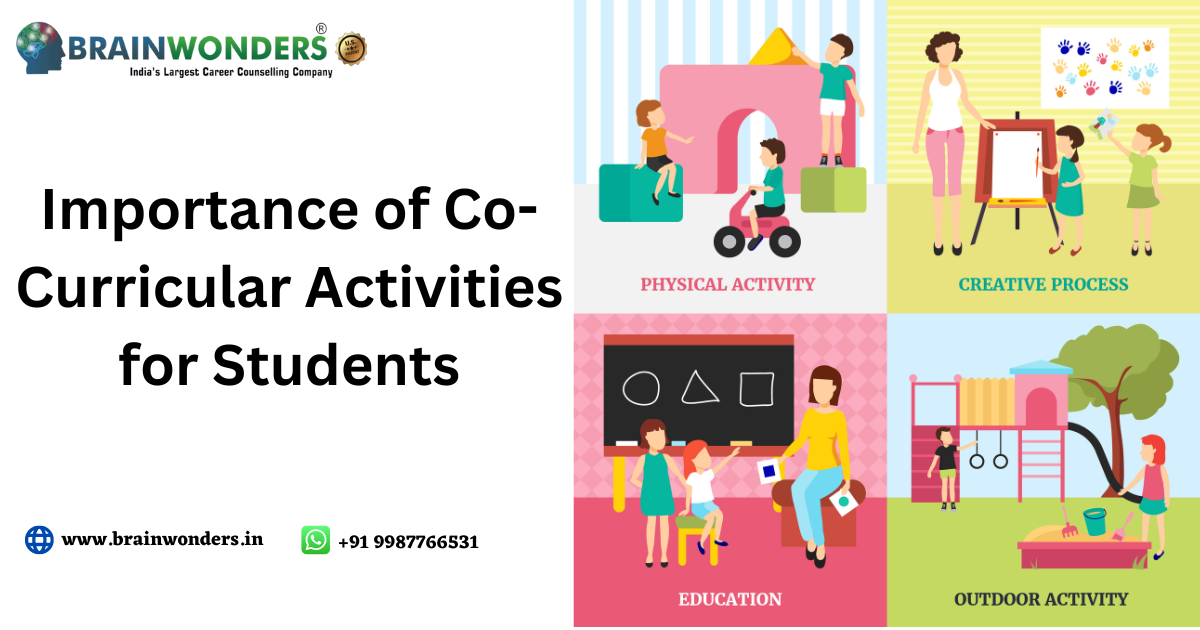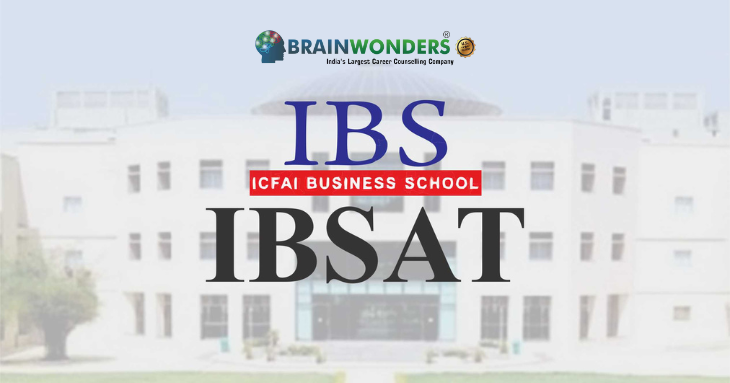

Let the best team of psychologists and career counsellors help you achieve your dream career!
Get expert guidance about your abilities, industries, and best ranked career options for you
Blog
16 February,2024 | By Brainwonders

In numerous school settings, whether inside classrooms, along the corridors, in activity rooms, or on the playgrounds, one often comes across questions like, “Why are we engaging in these activities?” or “What’s the real importance of co-curricular activities?” Perhaps you have pondered these questions or even heard your parents and teachers ask the same. It’s only natural to seek a deeper understanding of these activities’ value.
Co-curricular activities refer to activities that students engage in alongside their academic studies. These activities are usually conducted outside the regular classrooms, but they complement the academic curriculum and promote hands-on learning experiences. Students can develop essential skills such as problem-solving, critical thinking, creative thinking, effective communication, and collaborative abilities by participating in these activities.
In schools, co-curricular activities can take different forms. Some may be mandatory, like Music, art, or drama classes scheduled during the day. Others are voluntary, such as joining a school sports team, participating in debating teams or being part of the student editorial team for newsletters. Regardless of the specific activity, getting involved in co-curricular pursuits significantly contributes to emotional growth, social skill development, and overall personality enhancement. As a result, the significance of co-curricular activities in a student’s life cannot be overstated. These activities are vital in shaping well-rounded individuals with diverse abilities and qualities.
In the fast-changing world of the 21st Century, the traditional education curriculum, which originated in the early 20th Century, must make way for a new form of education and learning. In their book “21st Century Skills: Learning for Life in Our Times,” Bernie Trilling and Charles Fadel argue that the world has undergone such profound transformations that learning and education now hold entirely new roles in our daily lives.
Similarly, in his book “Five Minds for The Future,” Howard Gardner outlines five specific mental abilities that lead to success and happiness. These include expertise in various subjects (The Disciplinary Mind), the ability to integrate concepts from different disciplines to solve problems (The Synthesizing Mind), creative problem-solving skills (The Creating Mind), appreciation of diversity (The Respectful Mind), and fulfilling one’s duties and responsibilities as a citizen (The Ethical Mind).
These concepts stress the importance of education and learning beyond traditional classroom boundaries. The primary goal of education should be to foster holistic development, which encompasses intellectual, physical, emotional, and social growth. Co-curricular activities play a significant role in nurturing such comprehensive development.
Holistic development, crucial for success in the 21st Century, can only be achieved through a well-rounded education. Co-curricular activities contribute to this process by helping students develop critical skills and abilities essential for their future lives and careers. As a result, the importance of co-curricular activities during school and college education must be considered. They are a cornerstone of preparing individuals to thrive in the dynamic landscape of the modern world.
Combining the theoretical curriculum with co-curricular activities opens opportunities to delve deeper into learning and explore your strengths, interests, and abilities. This integration underscores the importance of co-curricular activities as a complement to the standard academic curriculum.
While the classroom is undoubtedly instrumental in intellectual development, co-curricular activities are vital in nurturing other aspects of your personality, particularly emotional and social skill development. Thus, the significance of co-curricular activities must be considered in holistic development.
Participating in co-curricular activities allows you to cultivate essential skills and values, including:
By actively participating in co-curricular activities, you gain more than just knowledge; you cultivate a well-rounded character with a diverse skill set, preparing you for success and personal fulfilment in various aspects of life.
Explore Your Future: Click Here To Get Customised Career Guidance!
The significance of co-curricular activities in the lives of young boys and girls cannot be underestimated, as these activities contribute to shaping their overall personalities. Although not a part of the core curriculum, co-curricular activities offer a purposeful blend of academic participation and all-around development opportunities. Let’s explore the benefits of co-curricular activities for students:
Conclusion:
Co-curricular activities are vital for students’ holistic development. Schools worldwide are integrating these activities into their curriculum to nurture all-rounders who excel academically and lead healthy lifestyles. Engaging in co-curricular activities improves academic performance and instils a sense of belonging, higher self-esteem, and motivation among students. The rewards of participating in structured activities go beyond academics, making students happier, healthier, and more involved in their school communities. Thus, the importance of co-curricular activities cannot be overstated.
Q1. What are the 5 benefits of co-curricular activities?
Ans: Engaging in co-curricular activities provides numerous advantages for students. To begin with, they enhance skill development by nurturing leadership, teamwork, time management, problem-solving, and communication skills. Secondly, these activities contribute to a well-rounded development, encompassing the physical, social, emotional, and cognitive dimensions of students' lives. Thirdly, co-curricular activities offer practical, real-world applications, allowing students to acquire hands-on experience and valuable life skills. Lastly, they present opportunities for self-expression, creativity, and individual growth.
Q2. What is the importance of co-curricular activities in special education?
Ans: Identifying the most challenging degree globally is subjective and contingent on factors like personal aptitude, interests, and career aspirations. Nevertheless, certain degrees are widely acknowledged as demanding owing to their rigorous curriculum and high level of difficulty. Typically, these degrees belong to the realms of science, technology, engineering, and mathematics (STEM), along with some specialized programs in fields like medicine and law. Examples of degrees often perceived as challenging encompass biomedical engineering, astrophysics, neurosurgery, aerospace engineering, and theoretical physics. It is crucial to recognize that the level of difficulty associated with a degree can fluctuate based on individual circumstances and perspectives.
Q3: How can co-curricular activities motivate students?
Ans: Participating in co-curricular activities enhances the academic curriculum, offering students a comprehensive education. These activities encompass sports, clubs, music, drama, volunteer work, and various others. Engaging in co-curricular activities has the potential to inspire students by boosting their involvement, instilling confidence, fostering a sense of belonging, cultivating leadership skills, and encouraging creativity. They contribute to a holistic education, providing students with a well-rounded understanding and a meaningful purpose beyond traditional classroom learning.
Let the best team of psychologists and career counsellors help you achieve your dream career!



,_Syllabus,_Pattern,_Old_Question_Papers.png)

